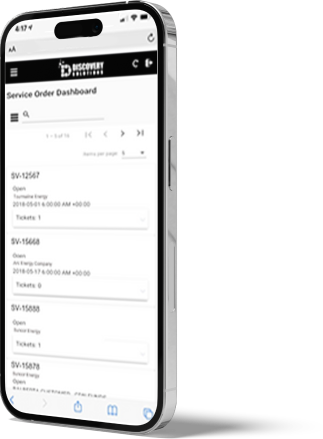What is Cloud ERP & How Does it Work?



Cloud ERP(Enterprise Resource Planning) has emerged as a transformative force, reshaping the way organizations manage their resources and operations. As businesses increasingly migrate towards cloud-based solutions, Cloud ERP stands out as a pivotal technological solution that promises enhanced flexibility, scalability, and accessibility. In this comprehensive blog, we'll unravel the intricacies of Cloud ERP, exploring its definition, core functionalities, benefits, and its transformative impact on diverse industries.
Defining Cloud ERP: A New Horizon for Business Management
Cloud ERP represents a paradigm shift from traditional, on-premises ERP systems by leveraging cloud computing technologies. Unlike on-premises solutions, Cloud ERP is hosted on remote servers, allowing businesses to access and manage their critical business data and applications via the internet. This shift to the cloud brings about a range of advantages, including increased flexibility, scalability, and cost-effectiveness.
Key Components of Cloud ERP:
1. Financial Management:
· Real-Time Financial Insights: Cloud ERP excels in providing real-time financial data accessible from anywhere with an internet connection.
· Scalable Financial Modules: The cloud-based nature of ERP allows for scalable financial management modules, ensuring adaptability to evolving business needs without significant infrastructure adjustments.
2. Supply Chain Management:
· Seamless Collaboration: Cloud ERP facilitates seamless collaboration across the supply chain, enabling real-time communication and information sharing.
· Agile Inventory Control: Enhanced by the cloud, ERP ensures agile inventory management with real-time visibility into stock levels and supply chain processes.
3. Manufacturing:
· Anywhere, Anytime Production Planning: Cloud ERP supports production planning from any location, providing accessibility and flexibility for manufacturing operations.
· Integrated Quality Control: Robust quality management features in Cloud ERP contribute to streamlined manufacturing processes, ensuring product quality and compliance.
4. Field Services and Rentals:
· Remote Work Order Management: Cloud ERP enables the remote management of field service activities, from work orders to resource dispatch, fostering agility and efficiency.
· Cloud-Based Asset Rental: For businesses involved in rentals, Cloud ERP provides a scalable and accessible platform for managing rental assets and agreements.
Benefits of Cloud ERP:
1. Increased Flexibility:
· Cloud ERP offers unparalleled flexibility, allowing users to access critical business data and applications from anywhere with an internet connection.
· Remote access fosters collaboration, enabling organizations to adapt quickly to changing business environments.
2. Enhanced Scalability:
· Cloud ERP systems are inherently scalable, allowing businesses to expand or contract their usage based on changing needs.
· Scalability ensures that organizations can adapt their ERP solution as they grow, without the need for significant upfront investments.
3. Cost-Effective Operations:
· Cloud ERP eliminates the need for extensive on-premises infrastructure, reducing capital expenses associated with hardware and maintenance.
· Subscription-based pricing models provide cost-effective options for businesses of all sizes, enabling predictable budgeting.
4. Improved Collaboration:
· Cloud ERP fosters enhanced collaboration across geographically dispersed teams through real-time data access and communication tools.
· Collaborative features contribute to improved decision-making and streamlined business processes.
5. Automated Updates and Maintenance:
· Cloud ERP vendors handle updates, maintenance, and security measures, ensuring that organizations always have access to the latest features and security patches.
· Automatic updates reduce the burden on internal IT teams, allowing them to focus on strategic initiatives.
Challenges in Cloud ERP Adoption:
1. Data Security Concerns:
· Organizations may have concerns about the security of their data when hosted in the cloud.
· Choosing reputable cloud ERP providers with robust security measures is crucial to address these concerns.
2. Integration Complexity:
· Integrating Cloud ERP with existing on-premise systems or other cloud applications can be complex.
· Proper planning and thorough integration strategies are essential to ensure a seamless transition.
3. Dependency on Internet Connectivity:
· Cloud ERP relies on internet connectivity for access, which may pose challenges in regions with limited or unreliable internet access.
· Ensuring reliable connectivity becomes a critical consideration for organizations adopting Cloud ERP.
Best Practices for Successful Cloud ERP Implementation:
1. Thorough Needs Assessment:
· Conduct a comprehensive analysis of organizational needs and objectives before selecting a Cloud ERP solution.
· Understanding specific requirements helps in choosing the most suitable cloud-based ERP solution.
2. Vendor Selection and Evaluation:
· Choose reputable Cloud ERP vendors with a proven track record of successful implementations.
· Evaluate vendor capabilities, data security measures, and ongoing support before making a selection.
3. Change Management and Training:
· Implement robust change management strategies to address potential resistance to cloud adoption.
· Comprehensive training programs ensure that users are familiar with the cloud-based ERP system and can leverage its full potential.
4. Data Migration and Integration Planning:
· Plan and execute data migration carefully to avoid inconsistencies and errors when moving data to the cloud.
· Thoroughly plan integration strategies to ensure seamless connectivity with existing systems.
The Future of Cloud ERP: Emerging Trends and Technologies:
1. Advanced Analytics and Artificial Intelligence (AI):
· Cloud ERP systems are incorporating advanced analytics and AI to provide deeper insights, predictive capabilities, and automation.
· AI-driven features enhance decision-making and process optimization within Cloud ERP environments.
2. Edge Computing Integration:
· Edge computing is emerging as a trend, bringing computing power closer to the data source.
· Integrating edge computing with Cloud ERP can enhance performance and reduce latency in data processing.
3. Blockchain for Enhanced Security:
· Blockchain technology is being explored for enhancing data security and integrity in Cloud ERP systems.
· Blockchain can provide a secure and transparent ledger for transactions and data sharing within the ERP environment.
In the era of digital transformation, Cloud ERP stands as a beacon of innovation, offering organizations a flexible, scalable, and accessible solution to navigate the complexities of modern business. The shift to cloud-based ERP systems is not just a technological evolution but a strategic decision to embrace agility, collaboration, and cost-effectiveness.
As organizations continue to adopt Cloud ERP, the future holds promises of further integration, intelligence, and security. The cloud ERP landscape will likely witness advancements in analytics, AI, edge computing, and blockchain integration, solidifying its position as a transformative force in the realm of business management. Embracing Cloud ERP is not merely an adoption of technology; it is a strategic move to future-proof organizations, ensuring they remain agile, competitive, and capable of thriving in the dynamic and interconnected business ecosystem.

Book a Call





